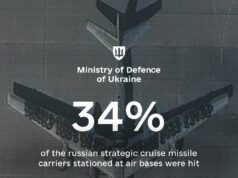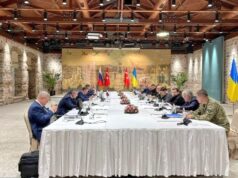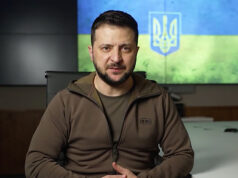KIEV, June 22 — Ukraine President Petro Poroshenko announced a week-long unilateral ceasefire on Friday as a first step in a plan to end the conflict with insurgents in the country’s restive east.
The truce, starting from 10 p.m. local time (2000 GMT) Friday and ending at 10 a.m. on June 27, is intended to give rebels an opportunity to lay down their weapons and start peace talks with the government in Kiev, according to the press office of the president.
However, the ceasefire and 15-point peace plan has not received the desired response from the rebels or the Kremlin, raising the likelihood fighting could resume after the temporary truce, Xinhua news agency reports.


CEASEFIRE DISMISSED BY MOSCOW, REBELS
Moscow blasted the peace initiative from Kiev, saying it looked more like an ultimatum to the insurgents.
“A primary analysis shows that this is not an invitation to peace and talks, but an ultimatum to Ukraine’s southeastern militia to lay down arms,” said the Kremlin press service.
“It lacks a key element – a proposal to start talks,” it said.
Kiev’s ceasefire call came as a Russian checkpoint building was reportedly destroyed by a mortar and a customs official was wounded near the Russia-Ukraine border.
Russia put the blame on Ukrainian government forces and its foreign ministry demanded “a decisive protest in relation to this aggressive act”.
“The Russian side is waiting for an explanation and an apology in connection with this,” said the Kremlin press service.
Ukraine denied the charge, with the defence ministry saying it had not fired heavy weapons near the border.
Rebel leaders also rejected the proposals.
“No one will lay down their arms until there is a full troop withdrawal from our land,” said Valeriy Bolotov, head of the self-proclaimed Lugansk People’s Republic.
His hesitancy was not unfounded, with Poroshenko stressing the ceasefire “does not mean that we will not fight back against aggression toward our troops”.
SANCTIONS AGAINST SEPARATISTS, RUSSIA
The United States and the EU welcomed the ceasefire.
“We commend President Poroshenko for his efforts and call on all sides to seize this long-sought opportunity to reverse the trend of an ever worsening security and humanitarian situation in eastern Ukraine,” the European External Action Service (EEAS) said in a statement.
Meanwhile, the U.S. on Friday imposed sanctions on several pro-Russian separatist leaders in Ukraine for their role in threatening the territorial integrity of Ukraine, freezing their assets within U.S. jurisdiction.
The individuals blacklisted are mostly separatist leaders or officials in eastern and southern regions of Ukraine.
“Should Russia fail to take immediate concrete steps to de-escalate the situation in eastern Ukraine, the U.S. and the European Union will coordinate additional steps to impose costs on Russia,” the White House said in a statement.
The sanctions came as the U.S. renewed accusations that Russia was providing the separatists with tanks and heavy weaponry and had redeployed “significant” military forces near the border.
“This is the closest Russian troops have come to the Ukraine territory since their invasion of Crimea,” State Department spokeswoman Jen Psaki told Friday’s press briefing, citing U.S. intelligence.
Moscow, meanwhile, said the military build-up near Ukraine was to shore up the leaky frontier, which it said displaced people were fleeing to Russia.
PEACE PLAN
In a move to halt the violence that has raged in eastern Ukraine since early April, Poroshenko’s 15-step peace plan offers an amnesty to rebels who have not committed “serious crimes” as part of concessions to insurgents, and promised power decentralisation in the country.
It includes a provision for enhancing the status of the Russian language across the country and provides security guarantee to all people regardless of political beliefs.
The Ukrainian government started its military operations against insurgents in mid-April in an attempt to retake control of cities and towns seized by the armed activists, who declared independence from Kiev and called for union with Russia.
Ukraine has said the separatist unrest has been fomented by Moscow and that separatist rebels had been supported and armed by volunteer fighters from Russia, a charge denied by the Kremlin.
More than 260 people have died in clashes between government troops and rebels so far.
-Bernama










